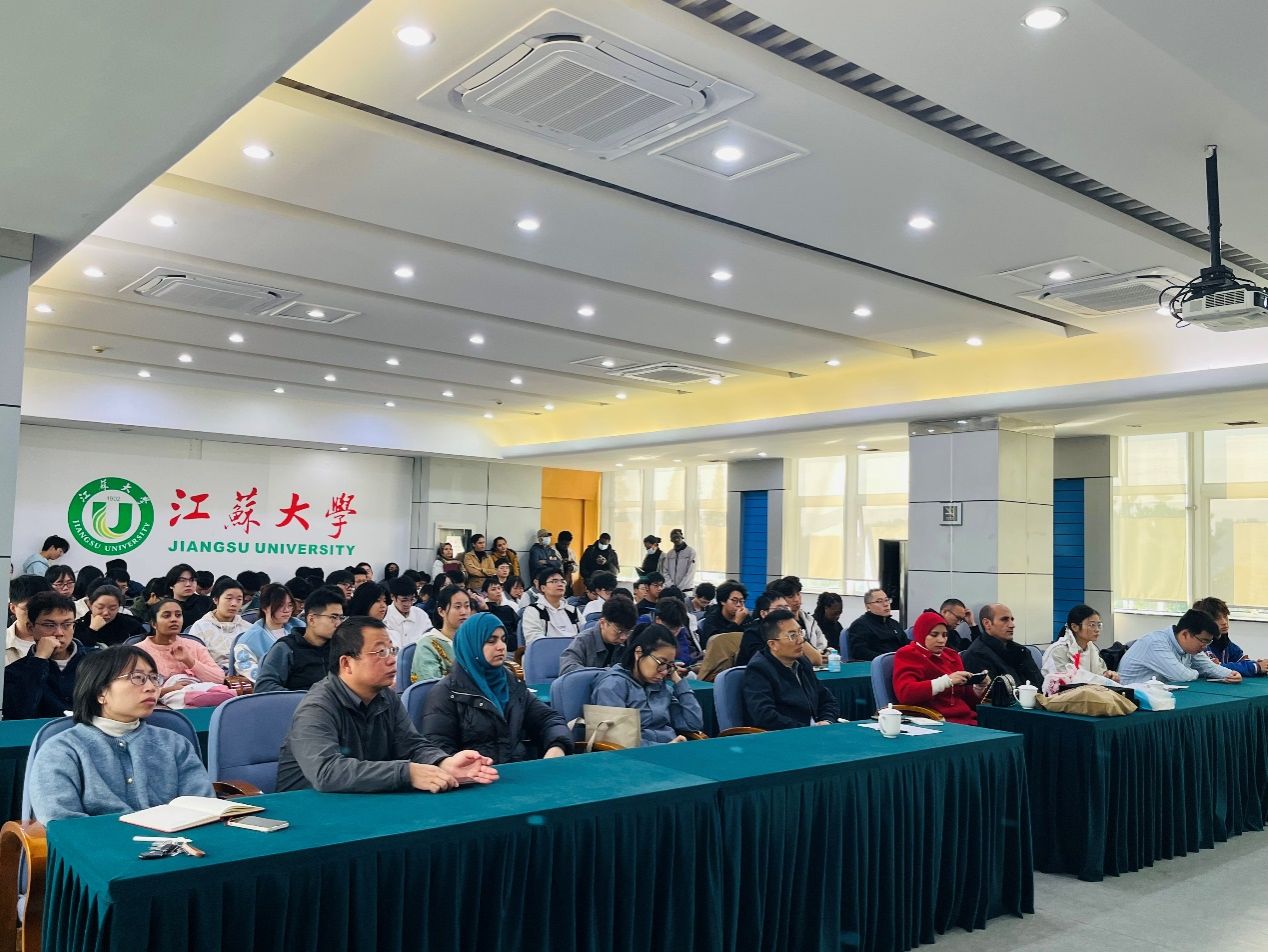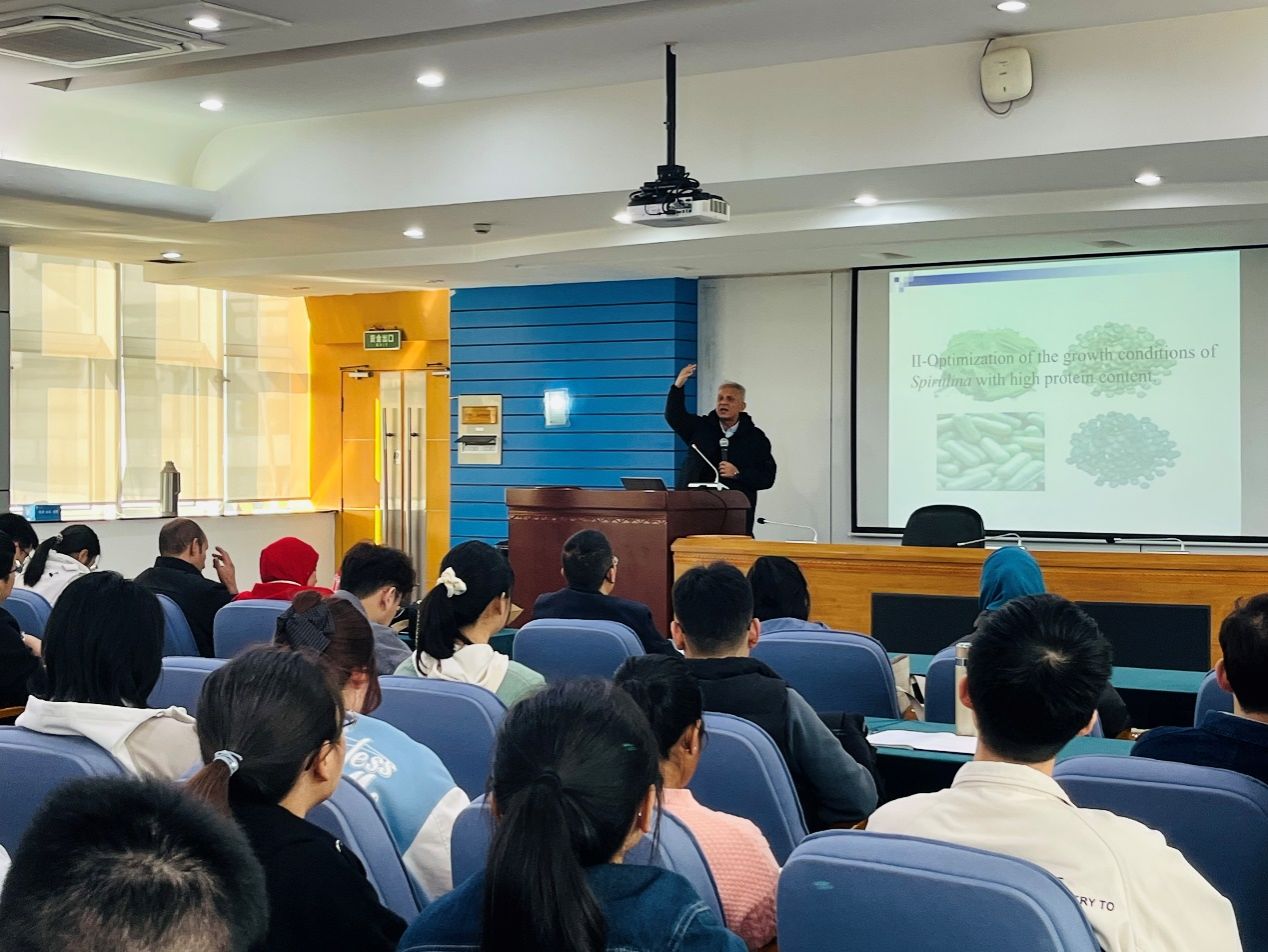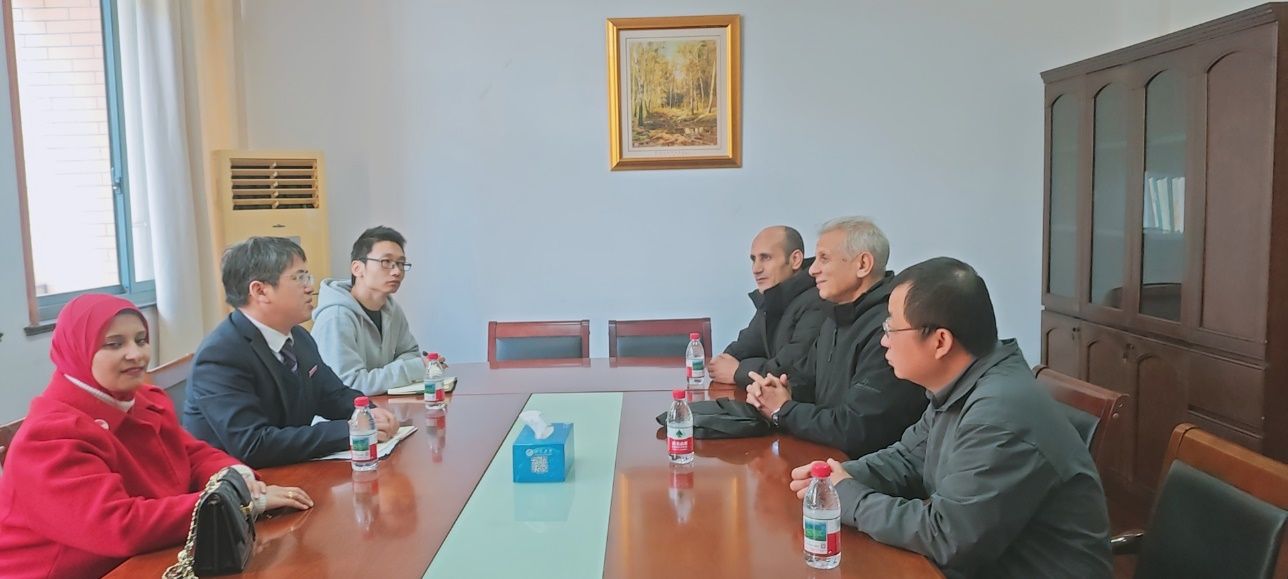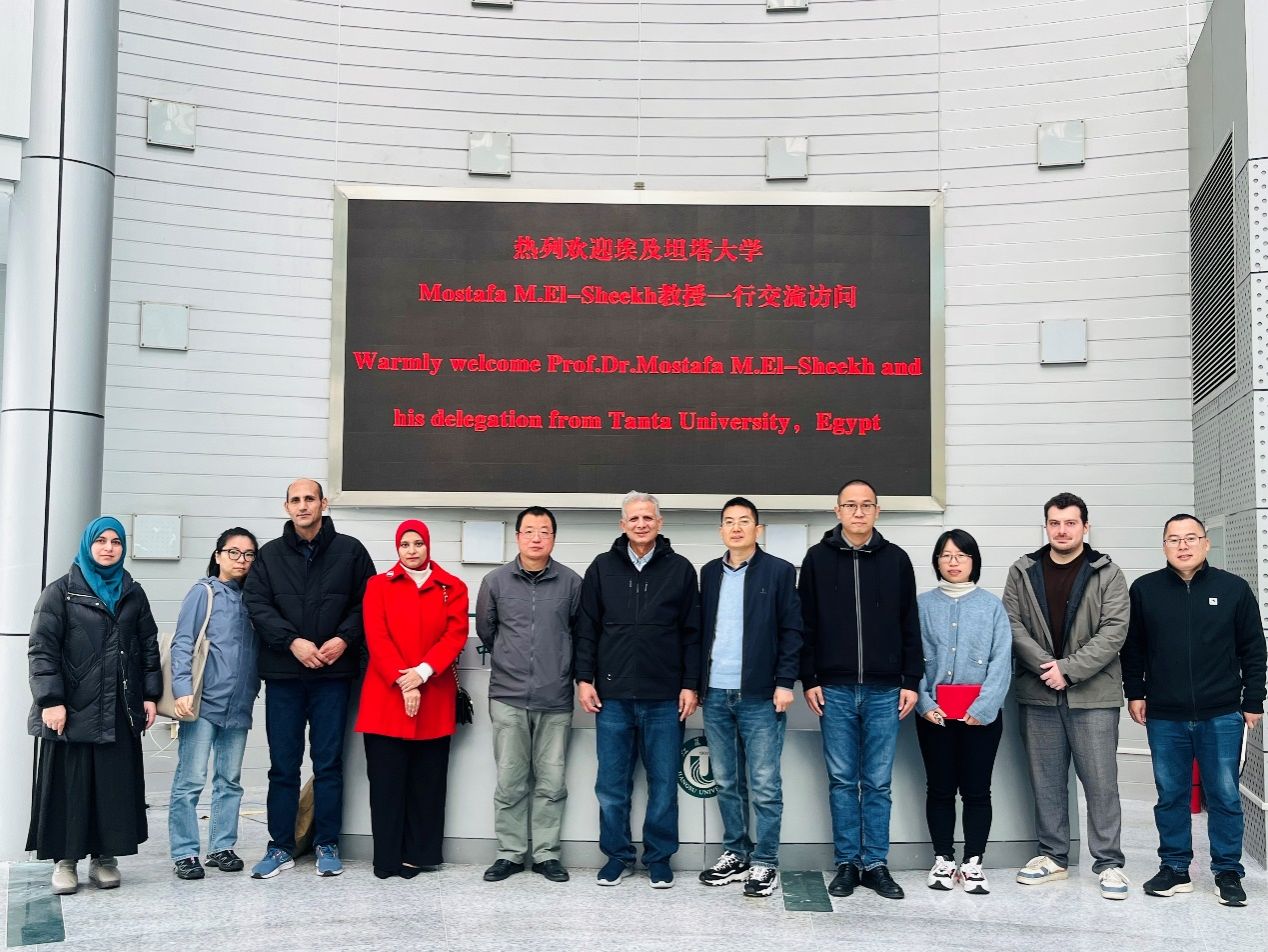On 22nd October, 2025, Professor Mostafa El-Sheekh, an international authority in applied algae science and former vice president of Tanta University in Egypt, and his delegation visited School of Food and Biological Engineering. In the third lecture hall of the conference center, Professor Mostafa gave a special presentation titled "Microalgae Feed in Tilapia Farming", systematically analyzing the application potential and research progress of microalgae resources in aquaculture, and providing key ideas for both the university and the enterprise to expand the multi-path utilization of blue-green algae. Professor Zhou Cunshan, the vice dean of the School of Food and Biological Engineering, presided over the report, and more than 100 teachers and students from related fields of the university attended to listen.

At the beginning of the report, Vice Dean Zhou Cunshan extended a warm welcome to Professor El-Sheekh and elaborated on his academic background and research achievements. Professor El-Sheekh, a member of the Biological Committee of the National Institute of Science and Technology of Egypt and the director of the National Committee for the Evaluation of Titles in Plant and Microbiology in Higher Education Institutions, has long been engaged in research on molecular biology and resource utilization of algae and has led his team to achieve breakthrough results in areas such as algae breeding, food development, fertilizer application and algae-plant interaction mechanism. He has published more than 320 high-level papers, won numerous international research awards, and has been on the list of "Top 2% of Scientists in the world" jointly released by Stanford University and Elsevier for many consecutive years. Vice President Zhou Cunshan particularly noted: "Professor El-Sheekh's research direction is highly consistent with our institute's strengths in efficient utilization of biomass resources and functionalization of natural products, and this exchange will build an important cooperation bridge for both sides."

In the special report, Professor El-Sheekh focused on the two core algal species, spirulina and chlorella, and elaborated in depth on their application value in aquatic feed. Spirulina has a protein content of 60% to 71%, and its essential amino acid composition meets FAO standards, while chlorella, with its high biomass yield and rich chlorophyll, is an ideal source of single-cell protein. Both have great potential to replace traditional fish meal. Combining the team's years of research, the professor focused on sharing empirical data on microalgae feed in red tilapia farming: Adding an appropriate proportion of microalgae dry powder to the feed can increase the growth rate of tilapia larvae by 18%, feed conversion rate by 22%, and significantly enhance the activity of immune enzymes in the fish. This finding is in synergy with the characteristics of tilapia as a high-quality, high-protein aquatic product - tilapia is rich in essential amino acids such as glutamic acid and glycine for the human body, and the application of microalgae feed can further enhance its nutritional and commercial value. For the multi-dimensional development of microalgae resources, Professor El-Sheekh presented the team's innovative achievements: in the field of food, phycobile proteins obtained through green extraction technology have been applied to the development of functional foods; In agriculture, algae-based fertilizers can increase the vitality of crop roots by 30% and reduce the use of chemical fertilizers by 25%; In the field of environmental protection, cyanobacteria nitrogen fixation technology offers a new approach to the treatment of water eutrophication. "The large-scale application of microalgae requires breaking through the cost bottleneck. We have established a dual system of photobioreactor + wastewater culture, which reduces the production cost of algal strains by 40%, laying the foundation for industrial promotion." During the interactive session after the report, teachers and students engaged in a lively discussion on issues such as the optimization of the proportion of microalgae feed addition and the selection and breeding of algal strains against pollution. Professor Zhou Cunshan, drawing on his research experience in the field of green catalytic conversion of biomass, added: "Our institute's accumulation in technologies such as ultrasound-assisted extraction and ionic liquid catalysis can complement the algal strain development of the professor team and is expected to achieve breakthroughs in the high-value utilization of microalgae."

During the visit, Professor Zou Xiaobo, Vice president of Jiangsu University, met with Professor El-Sheekh and his team. President Zou noted that Jiangsu University has always been led by the Belt and Road Initiative and has achieved remarkable results in the field of international cooperation in agricultural science and technology. This exchange with the Egyptian research team is an important measure to implement international scientific and technological innovation cooperation. "The utilization of microalgae resources is an important direction for achieving the 'dual carbon' goals, and the university will fully support in-depth cooperation between the two sides in joint research and development, talent cultivation and other aspects," he said. Professor El-Sheekh agreed and looks forward to the early implementation of cooperation projects in areas such as algal breeding technology breakthroughs and joint postgraduate training based on the strengths of both sides.

The visit of Professor El-Sheekh and his team not only brought the latest international developments in algal research to Jiangsu University, but also established a cooperation bond between China and Egypt in the fields of food and biomass resource utilization. "Microalgae are 'underwater gold mines', and through international cooperation to promote their multi-path utilization will surely inject new impetus into the sustainable development of the food industry and agriculture," said Vice dean Zhou Cunshan in his summary. (School of Food and Biological Engineering)

